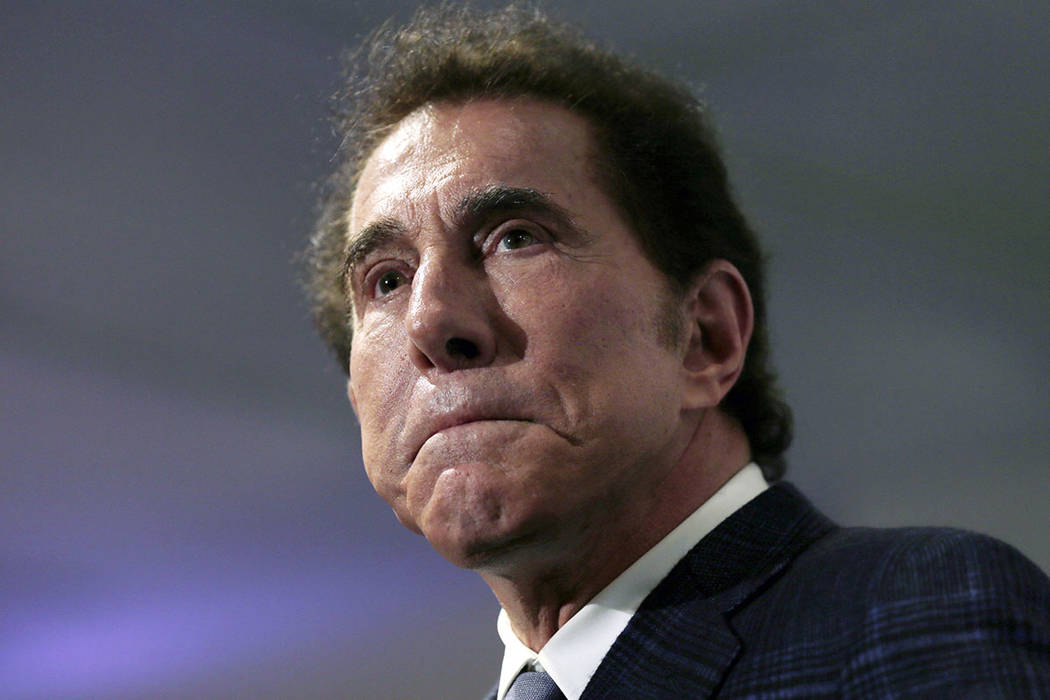Gaming Control Board insists it has jurisdiction over Steve Wynn
The state Gaming Control Board told former Nevada casino executive Steve Wynn on Wednesday that his motion to dismiss an Oct. 14 complaint against him is legally flawed.
The move sets the stage for a possible hearing before the Nevada Gaming Commission on Dec. 19. Wynn has until Dec. 9 to reply to the Control Board.
The Control Board’s five-count complaint through the state attorney general’s office alleged Wynn sexually harassed several female employees, violating state licensing suitability regulations.
Wynn has steadily denied ever harassing anyone in the 22 months since the allegations were disclosed in The Wall Street Journal in January 2018.
The complaint also asked the Gaming Commission to fine Wynn, who stepped down as chairman and CEO of Wynn Resorts Ltd. in February 2018 and sold off all his stock in the company a month later.
In its filing Wednesday responding to Steve Wynn’s Nov. 14 motion to dismiss, the board argued it continues to have jurisdiction over him and his finding of suitability to hold a gaming license.
The Control Board conducted an investigation and found evidence of multiple instances of sexual conduct by Steve Wynn involving subordinate employees. “By engaging in this conduct, whether consensual or not, Mr. Wynn disregarded Wynn Company’s policies and procedures,” the complaint said.
Wynn’s Las Vegas-based attorneys were not available for comment Wednesday.
In his motion to dismiss the complaint, Wynn said he no longer has any involvement with a Nevada gaming licensee and thus no longer poses an alleged threat to the industry or the public at large.
In Wednesday’s 13-page filing, the Control Board explained how regulators, through Nevada statutes, enforce public policy and that the board has “full and absolute power” to recommend to the commission that a finding of suitability be revoked.
“There is no language in the Gaming Control Act that even hints that the board’s investigatory and disciplinary powers are dependent on a person’s current nexus with a gaming licensee,” the filing says. “The act does allow for the ‘surrender’ of a gaming license, but spells out mandatory procedures for the effective surrender of that license. A surrender is not effective until this commission accepts it. Even after surrender of a license, the former licensee remains liable for penalties, fines, fees, taxes or interest due.”
The filing also noted that Steve Wynn repeatedly violated Wynn Resorts’ policy, thwarted Wynn Resorts and the board’s discovery of his behavior through payments and nondisclosure agreements and impeded the board’s investigation of the allegations by refusing to appear and testify.
“Wynn seems to argue that he can unilaterally cut off this commission’s subject matter jurisdiction by leaving Wynn Resorts, but no section of the Gaming Control Act supports his premise,” the filing said. “Indeed, an analogous provision is to the contrary — a licensee’s surrender of his license is only effective when the commission accepts it.”
Wynn’s attorneys and representatives of the attorney general’s office, which represents the Control Board, signed off on a stipulation establishing the calendar that provides for Steve Wynn’s reply to the board response and a subsequent hearing before the Gaming Commission.
Contact Richard N. Velotta at rvelotta@reviewjournal.com or 702-477-3893. Follow @RickVelotta on Twitter.























